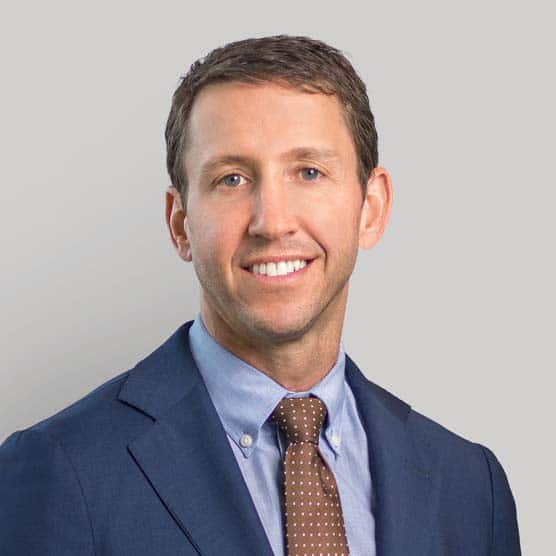Staffing remains a challenging issue for seniors housing and healthcare communities and continues to be a topic of conversation at gatherings such as the 2024 Fall NIC Conference. As operators focus on improving occupancy, strengthening culture, enhancing recruiting and retention efforts, and other strategies to boost value, the proposed federal nursing home staffing mandate lurks in the background, threatening to disrupt an already-strained sector.
To gain more insights into where the mandate stands as 2024 winds down, we caught up with Steve LaForte, chief legal officer and executive vice president of corporate affairs at Cascadia Healthcare, an Idaho-based seniors housing and care provider with communities in Arizona, Idaho, Montana, Oregon, and Washington. LaForte was attending the NIC conference on his way to Capitol Hill to continue his efforts advocating for operators and educating about the staffing mandate’s shortcomings.
Lument: In September 2024, the Department of Health and Human Services filed federal records and began its legal defense of the staffing mandate. This was in response to the lawsuit filed in May by the American Health Care Association, the Texas Health Care Association, three Texas providers, and LeadingAge. There is also a separate federal challenge of the mandate filed by the state of Texas, all arguing that the federal mandate in its current form should be thrown out. Will the lawsuits work?
LaForte: I think the lawsuits ultimately will be successful. My feeling is that the mandate will never go into effect as it’s written now, in terms of the actual ratios and specific metrics you need to hit. As we know, there’s a shortage of qualified nurses, and the workers just aren’t there. The ratios they propose are irrational.
Of course, the results of the presidential election could also lead to the rule being dismissed. Without getting into predictions, it’s important to remember that this was President Biden’s issue, and he is no longer in the race. Both of the current candidates could feasibly move on from the legislation after the election.
Lument: Assuming this version of legislation is dismissed, where would the process go from there?
LaForte: From an operator’s standpoint, the concern remains, as the concept of enforcing staffing minimums doesn’t just go away with these lawsuits. I think the Centers for Medicare & Medicaid Services (CMS) will come back with a new version of the legislation, one that is written better and tighter, and has some basis in commercial feasibility. And I think we need to be ready for it. At a certain point, there will likely be some type of staffing mandate we’ll need to figure out how to live with.

Lument: In the meantime, what can operators and advocates do to prepare for the possibility of future reforms?
LaForte: Operators should focus on improving culture in their communities, which would have ripple effects of positivity throughout their workforce. The strongest thing an operator can do is build a culture and community that people want to come to.
On a more macro level, we really need to collaborate. We shouldn’t even be talking about staffing mandates, but instead workforce development and solutions. And how we collaborate with the industry and government where it’s a public-private partnership no matter how you slice it.
I’ve been speaking to a lot of people about this issue, and I don’t think there’s a single operator or industry advocate that doesn’t want more qualified labor in seniors housing and healthcare. We all agree we need more sustainable staffing methods. But the numbers they came up with for the staffing ratios, as well as the one-size-fits-all metrics, with no regard for geographical differences, are simply irrational and unworkable.
Lument: How can industry and government collaborate to address this issue?
LaForte: I think we need to ask: how do we structure a legal immigration program that allows qualified labor to come into our country and work in our healthcare and long-term care communities? Right now, for example, there is a huge pipeline of nurses from the Philippines who are qualified and are looking to come here and would be part of the solution. I understand the partisanship that gets in the way of progress on immigration reform, but I don’t know why you can’t come up with specific legislation that directs a certain amount of legal immigration to healthcare, specifically seniors housing and healthcare. We’re all going to get old; we all have parents and grandparents. This is a societal issue that impacts everyone. If legal immigration can help alleviate this issue, then we need to pursue it.
Stay informed on the latest industry news via Lument’s seniors housing and care insights.

